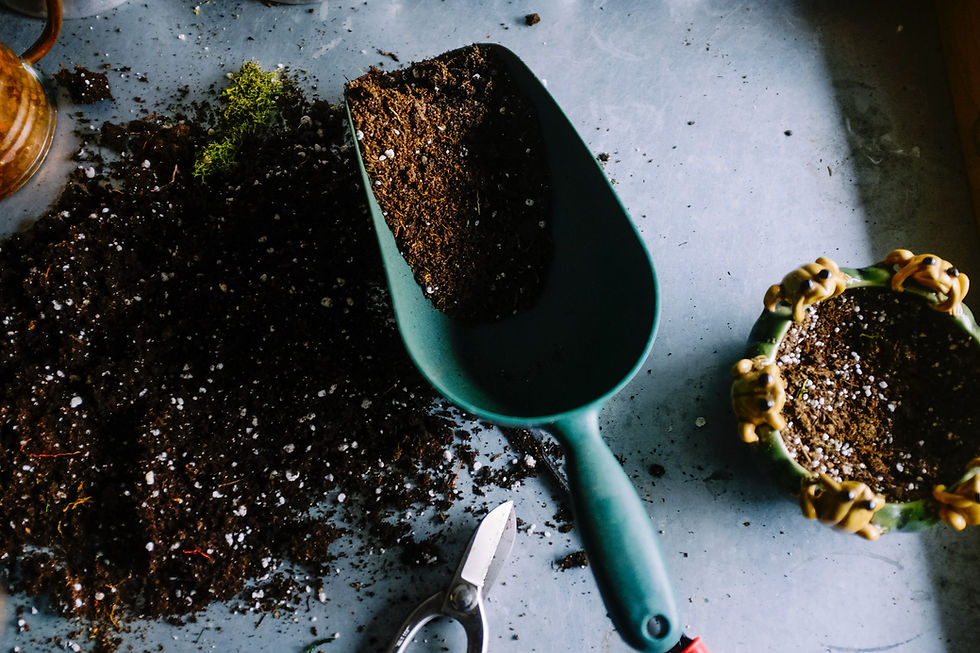The ABCs of Composting: Turning Kitchen Scraps into Garden Gold!
- Ranjani

- May 30, 2023
- 2 min read
Composting is a wonderful practice that allows us to recycle kitchen scraps and yard waste, turning them into nutrient-rich soil amendment for our gardens. Not only does composting reduce waste and landfill usage, but it also provides a sustainable and cost-effective way to improve the health and fertility of your garden soil. We'll explore the ABCs of composting, guiding you through the process of transforming your kitchen scraps into garden gold.

A is for Appropriate Compost Materials:
To start composting, it's essential to know what materials are suitable for your compost pile. Kitchen scraps like fruit and vegetable peels, coffee grounds, eggshells, and tea leaves make excellent compost ingredients. Yard waste such as leaves, grass clippings, and small branches can also be added. Avoid composting meat, dairy products, oily foods, and pet waste, as these can attract pests and create unpleasant odors.
B is for Building the Compost Pile:
Creating a compost pile requires a good balance of green (nitrogen-rich) and brown (carbon-rich) materials. Aim for a ratio of roughly 3 parts brown materials to 1 part green materials. Layer the materials, starting with a thick base of twigs or straw, followed by alternating layers of kitchen scraps, yard waste, and brown materials like dry leaves or shredded paper. This layering promotes airflow and helps the pile decompose evenly.
C is for Composting Techniques:
Composting can be done using various techniques, depending on your available space and time. Some popular methods include:
a. Traditional Compost Pile: This involves creating a pile directly on the ground. Regular turning or mixing of the pile helps aerate it and speed up the decomposition process.
b. Compost Bin: Using a compost bin or tumbler helps contain the materials, retain heat, and make turning easier. These bins come in various sizes and styles to suit different needs.
c. Vermicomposting: Vermicomposting involves using worms to break down organic waste into nutrient-rich castings. It's an excellent option for those with limited outdoor space.
D is for Decomposition Process:
As you tend to your compost pile, the decomposition process takes place. Microorganisms, bacteria, and fungi break down the organic matter, generating heat and transforming it into compost. Maintain a good balance of moisture by occasionally watering the pile and keep it aerated by turning or mixing the materials every few weeks. This will ensure a healthy decomposition process.
E is for Earthy, Black Gold:
After a few months to a year, depending on the composting method and environmental conditions, your kitchen scraps and yard waste will transform into dark, crumbly, nutrient-rich compost, often referred to as "black gold." It's a valuable soil amendment that improves soil structure, retains moisture, and provides essential nutrients for your plants.
Composting is a rewarding and environmentally friendly practice that benefits both your garden and the planet. By following the ABCs of composting, you can turn your kitchen scraps into garden gold, enriching your soil and reducing waste. Start composting today and witness the transformation of organic matter into nutrient-rich compost—a true testament to the wonders of nature and sustainable living.






Comments